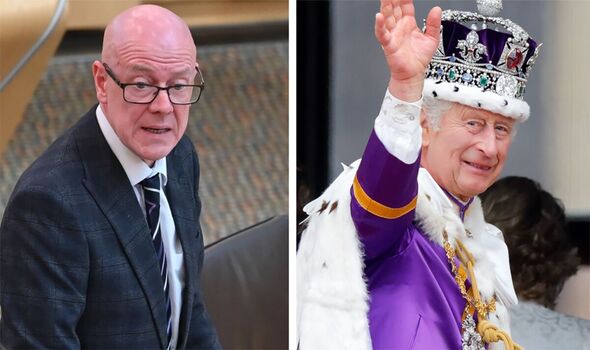Politics
SNP MSP Kevin Stewart Proposes Removal of Monarchy Oath

Scottish National Party (SNP) Member of the Scottish Parliament (MSP) Kevin Stewart has launched a motion to eliminate the oath of allegiance to King Charles III within the Scottish Parliament. This proposal follows Grenada’s recent decision to remove a similar oath from its national Parliament. Stewart’s initiative seeks to shift the allegiance of MSPs from the British monarchy to the people of Scotland.
In a post on social media platform X, Stewart stated, “Grenada has decided to drop the oath of allegiance to the King. Isn’t it time that Scotland followed their lead?” His motion emphasizes the notion that Scotland’s Parliament should empower its members to pledge their loyalty to the people rather than an unelected monarch. The text of the motion reads: “That the Parliament commends Grenada’s reported decision to drop the oath of allegiance to the British crown and replace it with a pledge of allegiance to Grenada; recognises that the people of Scotland are sovereign, and believes that Scotland’s Parliament should have the power to follow Grenada’s lead.”
Under the Scotland Act 1998, all Members of the Scottish Parliament are required to take an oath of allegiance or make a solemn affirmation before participating in parliamentary activities. Stewart’s motion could lead to a significant discussion in Holyrood if it garners enough support, although any resulting vote would lack the power to alter existing laws regarding the oath.
In response to Stewart’s proposal, Murdo Fraser, a Scottish Conservative MSP, criticized the move as “shameless,” suggesting it is an attempt to appeal to republican sentiments both within and outside the SNP. Fraser remarked during an interview with GB News that the monarchy remains a cherished institution in Scotland. He stated, “Most people will wonder why nationalist MSPs are focusing on this constitutional navel gazing at a time when they should be tackling the real priorities of Scots.”
Fraser emphasized that the Scottish Government should concentrate on pressing issues such as reducing NHS waiting times, stimulating economic growth, and improving educational standards rather than engaging in what he termed “petty student politics.”
Stewart’s motion reflects a growing conversation about the role of monarchy in modern governance, particularly in regions with strong national identities. Discussions surrounding this topic may continue as Scotland navigates its relationship with the British crown amidst calls for greater autonomy and self-determination.
As the debate unfolds, the outcome of Stewart’s motion could serve as a pivotal moment for Scottish parliamentary practices and the ongoing dialogue about national identity in the context of the monarchy. The discussion not only highlights the divide between different political factions in Scotland but also raises broader questions about the future of parliamentary oaths and national allegiance.
-

 Health3 months ago
Health3 months agoNeurologist Warns Excessive Use of Supplements Can Harm Brain
-

 Health3 months ago
Health3 months agoFiona Phillips’ Husband Shares Heartfelt Update on Her Alzheimer’s Journey
-

 Science2 months ago
Science2 months agoBrian Cox Addresses Claims of Alien Probe in 3I/ATLAS Discovery
-

 Science2 months ago
Science2 months agoNASA Investigates Unusual Comet 3I/ATLAS; New Findings Emerge
-

 Science1 month ago
Science1 month agoScientists Examine 3I/ATLAS: Alien Artifact or Cosmic Oddity?
-

 Entertainment5 months ago
Entertainment5 months agoKerry Katona Discusses Future Baby Plans and Brian McFadden’s Wedding
-

 Science1 month ago
Science1 month agoNASA Investigates Speedy Object 3I/ATLAS, Sparking Speculation
-

 Entertainment4 months ago
Entertainment4 months agoEmmerdale Faces Tension as Dylan and April’s Lives Hang in the Balance
-

 World3 months ago
World3 months agoCole Palmer’s Cryptic Message to Kobbie Mainoo Following Loan Talks
-

 Entertainment2 months ago
Entertainment2 months agoLewis Cope Addresses Accusations of Dance Training Advantage
-

 Science1 month ago
Science1 month agoNASA Scientists Explore Origins of 3I/ATLAS, a Fast-Moving Visitor
-

 Entertainment4 months ago
Entertainment4 months agoMajor Cast Changes at Coronation Street: Exits and Returns in 2025









